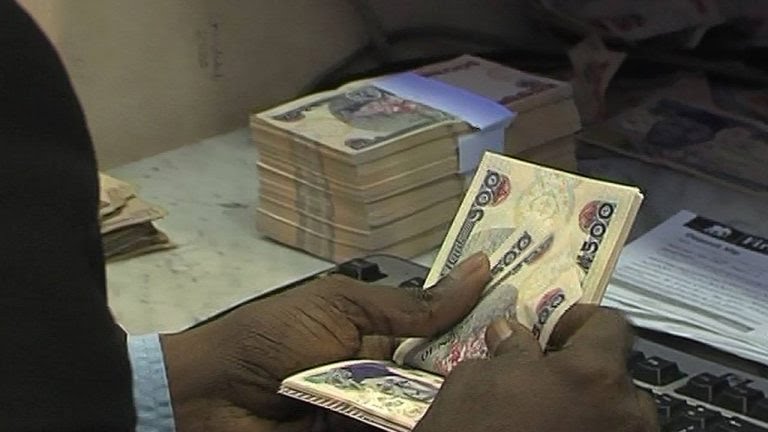How Saud Royalty Became The Wealthiest Family In The World
January 16, 2026Top Ten Wealthiest Muslims In The World
January 13, 2026Naira Strength: Economic Experts Predict Mid-year Drop In Prices
Naira Strength: Economic Experts Predict Mid-year Drop In Prices

Economic experts are hopeful that the current high costs of goods and food will begin to drop by the end of the first half of this year.
But that is on the condition that the current momentum to energise the economy does not suffer any reversal.
A major player in the foreign exchange sector, the Association of Bureaux De Change Operators of Nigeria (ABCON), has appealed to the Central Bank of Nigeria (CBN) to lower the dollar selling rate to its members in view of the massive appreciation of the naira against the dollar and other international currencies while the Lagos State Consumer Protection Agency directed supermarkets and grocery stores in the state to display prices on their products or risk being fined or shut down.
A combination of factors including fuel subsidy removal, insecurity in parts of the country that has forced many farmers off the land and shortage of foreign exchange are said to be largely responsible for the high cost of living.
The naira, which exchanged for between N1,150 and N1,180 to the dollar as of December 31, 2023, crashed to N1,400 in January and further depreciated at the black market to N1,950 in mid-February with many speculating that it could get worse. But the naira experienced a good fortune by the middle of March following a raft of policy initiatives by the apex bank to improve the transparency and inflows of the FX market.
However, the appreciation of the naira is yet to reflect on the prices of commodities as the market has not fully adjusted to the current realities in the FX crash.
Investigation by our correspondent across major markets, chain stores and retail outlets in parts of Lagos and other parts of the country, revealed that the prices of major commodities are yet to reflect the gains of the dollar crash.
The prices of perishable agricultural produce such as vegetable crops, grains, maize, wheat, bread, beverages, and fizzy drinks have shot up astronomically.
A market survey conducted by our correspondent showed that some brands of soft drinks packaged in pet bottles, which hitherto sold for N300 per unit from January till late February are now being sold at N350, while some of the branded malt drinks sell at N450, up from N400.
Some of the chain stores in Lagos and parts of Ogun State are not helping matters in the pricing of goods.
Some of them were found to change prices indiscriminately. There were instances when they altered prices of goods already displayed on their shelves within 24 hours.
Speaking to The Nation, Kabir Ibrahim, National President of the All Farmers Association of Nigeria (AFAN), said it was rather scandalous that the prices of commodities were not yet reflective of the gains recorded with the naira against the greenback.
“Ideally, if the Naira is firming up, the prices of all goods should come down and should show the increase in the strength and purchasing power of the Naira,” he said.
He added: “If prices are not coming down, it’s either that the whole thing is artificial or there is lack of education on the whole matter or there is fraud in it because that’s why we kept saying that some of these items should not be dollarised.”
Ibrahim, who is the Managing Director/Chief Executive Officer of Kebram Agritrade Limited, cited the price trajectory with some of the locally-sourced goods.
His words: “I recall talking about the price of cement the other day during a guest appearance in one of the national televisions, and I said that the price was unreasonably high because 80 per cent of the components are not bought with dollars.
“Today, cement in Abuja is sold everywhere at N7,500. That price is reflecting on the increasing strength of the Naira. Now again, if you go to the price of reinforcement steel, it is also coming down.
“So if the prices of rice and other food items are not coming down, it only means one thing: an act of sabotage. It is not the fault of the farmers that don’t have any of those commodities to sell now; it’s the middlemen and businessmen.”
The AFAN boss is however optimistic that once the farmers are able to farm during this season and reap bountiful harvests, this may have a positive impact on the supply of food for the rest of the year.
“You know the farmers have sold off all they had. In fact, the harvest season is off, we are now getting into the raining season. So, we have really got nothing to sell as such.
“Therefore, the government should now concentrate on the middlemen, the people who buy and hoard these items and bring them out in order to cause artificial scarcity. So, that is what we should concentrate on; not farmers.”
Echoing similar sentiments, Peter Sunday Adebola, the Managing Director Edgefield Capital Management Limited, an investment-driven company, said several factors may be at play and could possibly be fueling the soaring cost of commodities thus far.
END.










